Durable, Stunning, and Maintenance-Free Concrete Coatings — Backed by a Lifetime Warranty!
Done in Just One Day!
No more chips, cracks, or stains – just a showroom-ready finish designed to withstand the toughest wear and tear.
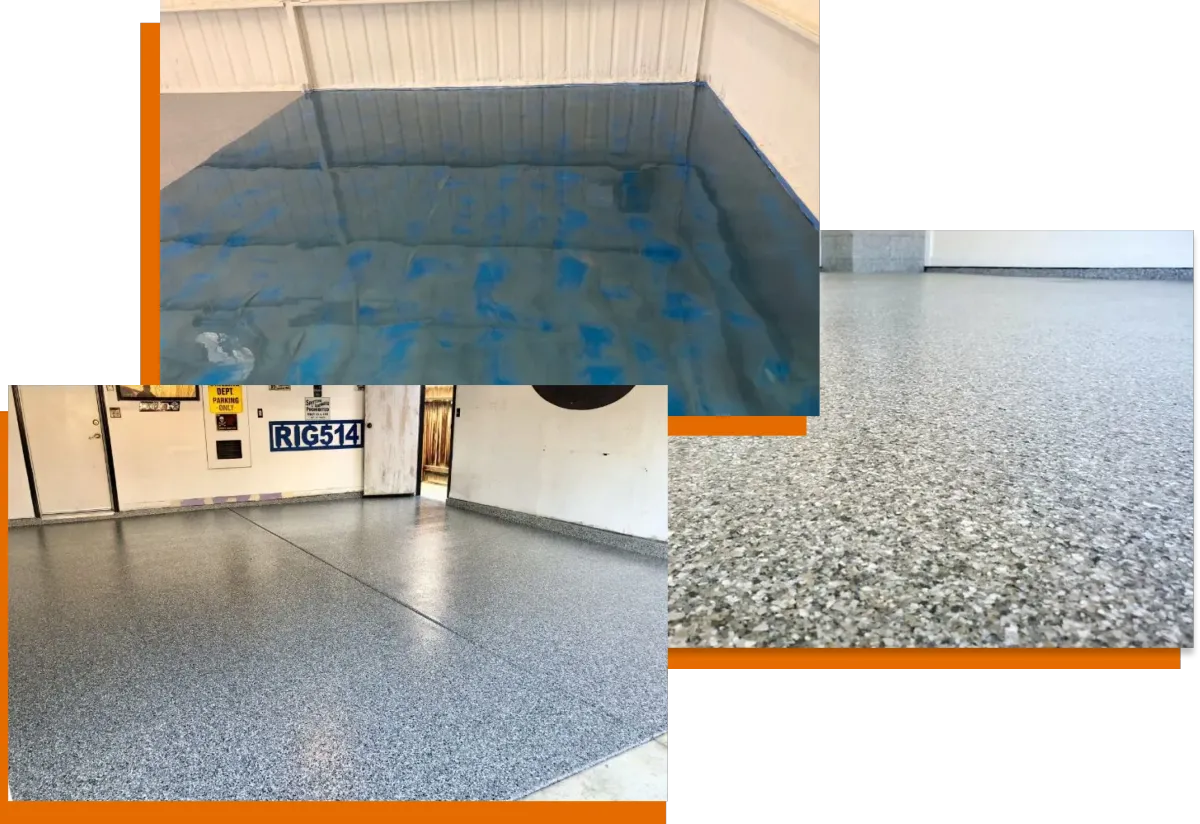
Durable, Stunning, and Maintenance-Free Concrete Coatings — Backed by a Lifetime Warranty!
Done in Just One Day!

No more chips, cracks, or stains – just a showroom-ready finish designed to withstand the toughest wear and tear.
Our Services
We install our product in your home, garage, patio, pool deck, driveway, or business in just ONE DAY!
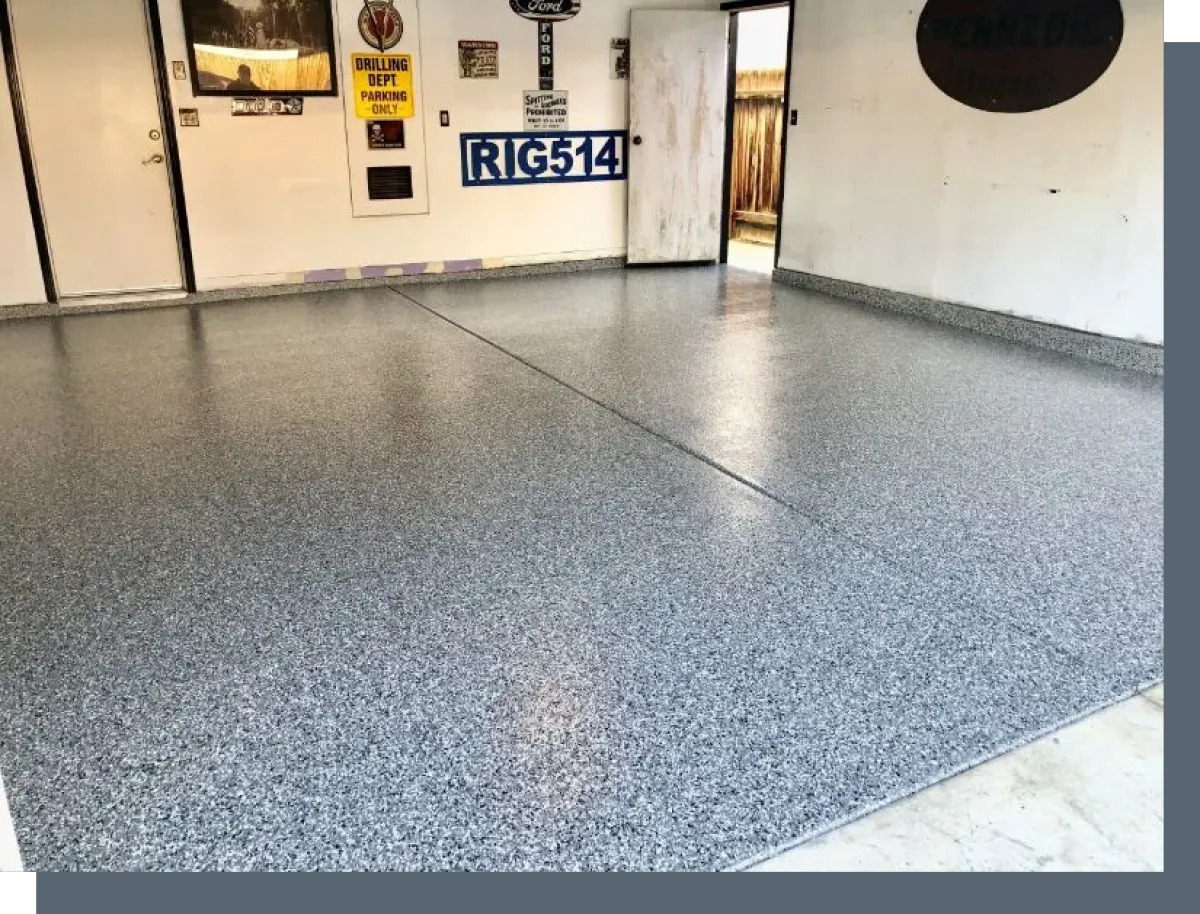
Polyaspartic Coatings
Description: Polyaspartic coatings offer a fast-curing solution, with some products drying in as little as one hour. They provide UV stability, which prevents yellowing over time and can be applied at a wide range of temperatures.
Durability: Extremely durable with high abrasion resistance. Maintains long-term transparency and can withstand extreme weather conditions.
Applications: Ideal for garages, driveways, and commercial spaces that require quick turnaround and UV resistance. Also suitable for outdoor applications like decks and patios.
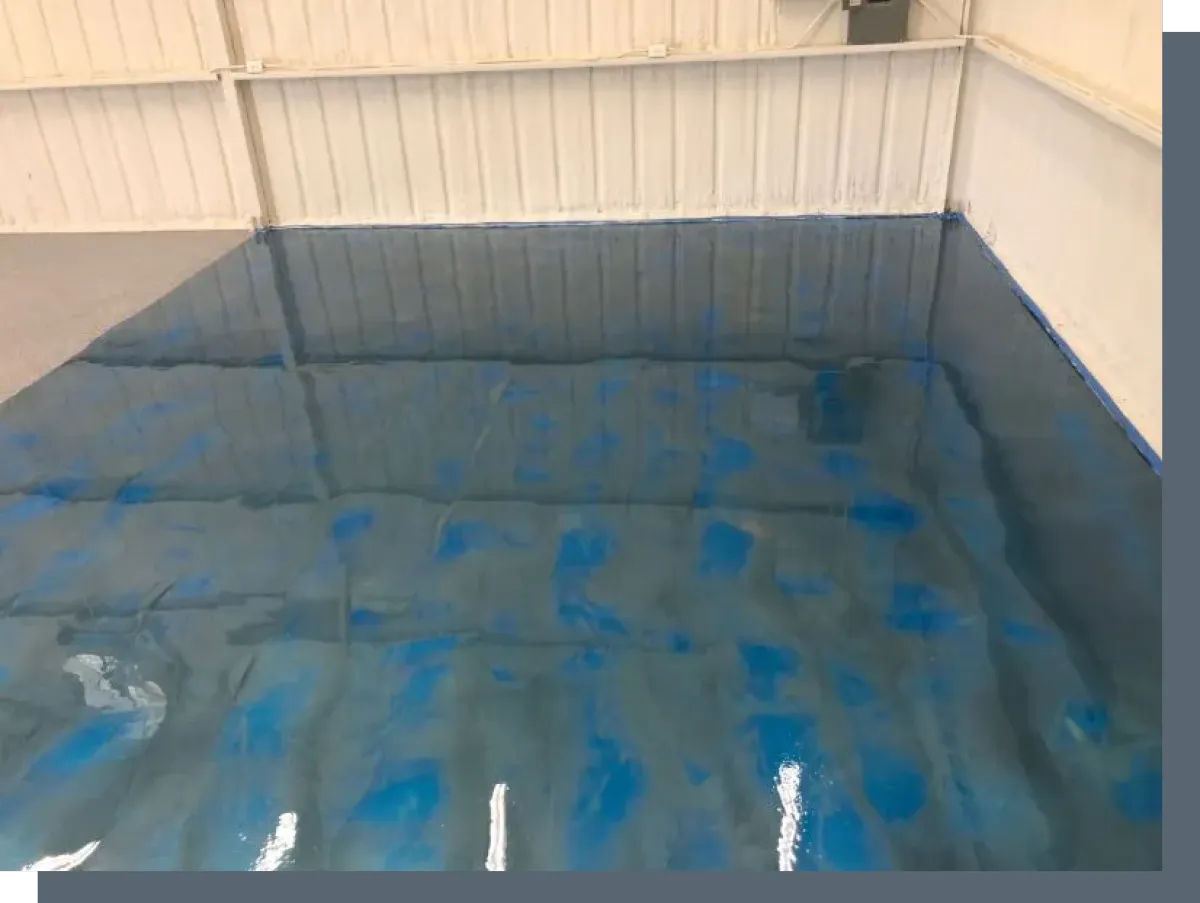
Epoxy Flooring
Description: Epoxy flooring provides a strong, durable, and glossy finish, ideal for high-traffic areas. Its seamless surface is easy to clean and maintain, offering excellent resistance to stains, cracks, and chemicals.
Durability: High durability, lasting up to 20 years with proper maintenance. Resistant to wear, making it ideal for both residential and industrial settings.
Applications: Best used in garages, warehouses, and industrial environments. Also suitable for residential kitchens and basements.
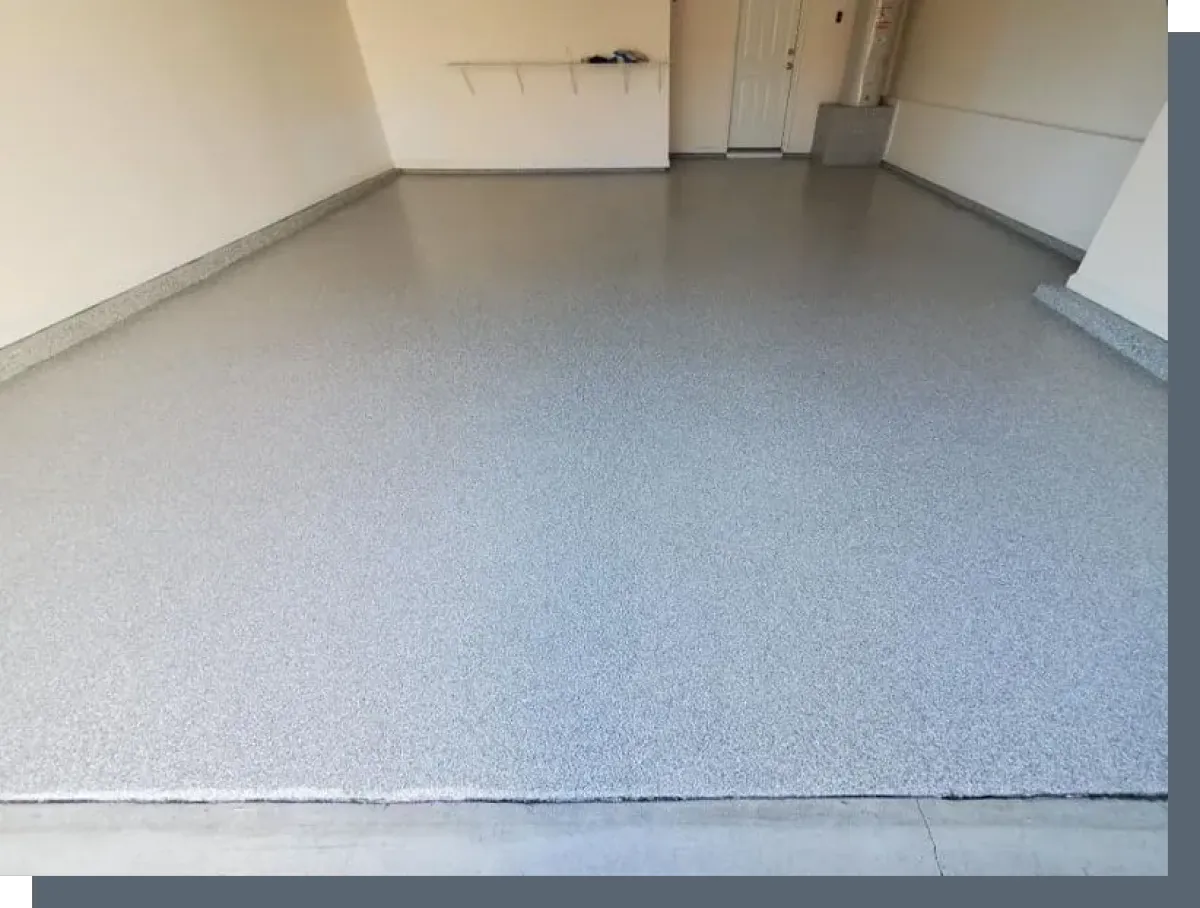
Epoxy Flooring
Description: Polyurea is a highly flexible coating system, known for its fast curing times and elasticity, which makes it great for areas subject to high levels of movement. It is also waterproof and resistant to various chemicals.
Durability: Very high durability and flexibility. Resistant to scratches, impacts, and chemical spills. Offers excellent weather resistance.
Applications: Commonly used for industrial floors, water tanks, and lining systems. Suitable for outdoor spaces such as pool decks and water features.
Our Services
We install our product in your home, garage, patio, pool deck, driveway, or business in just ONE DAY!

Polyaspartic Coatings
Description: Polyaspartic coatings offer a fast-curing solution, with some products drying in as little as one hour. They provide UV stability, which prevents yellowing over time and can be applied at a wide range of temperatures.
Durability: Extremely durable with high abrasion resistance. Maintains long-term transparency and can withstand extreme weather conditions.
Applications: Ideal for garages, driveways, and commercial spaces that require quick turnaround and UV resistance. Also suitable for outdoor applications like decks and patios.

Epoxy Flooring
Description: Epoxy flooring provides a strong, durable, and glossy finish, ideal for high-traffic areas. Its seamless surface is easy to clean and maintain, offering excellent resistance to stains, cracks, and chemicals.
Durability: High durability, lasting up to 20 years with proper maintenance. Resistant to wear, making it ideal for both residential and industrial settings.
Applications: Best used in garages, warehouses, and industrial environments. Also suitable for residential kitchens and basements.

Epoxy Flooring
Description: Polyurea is a highly flexible coating system, known for its fast curing times and elasticity, which makes it great for areas subject to high levels of movement. It is also waterproof and resistant to various chemicals.
Durability: Very high durability and flexibility. Resistant to scratches, impacts, and chemical spills. Offers excellent weather resistance.
Applications: Commonly used for industrial floors, water tanks, and lining systems. Suitable for outdoor spaces such as pool decks and water features.
Why choose Us
Providing the #1 Concrete Coating product and process on the market.
1 day concrete coatings
Lifetime warranty
Industry leading 6 step process
Up front pricing on the spot - Never ballpark bait and switch pricing
Family owned
Locally owned
Trusted
State of the art equipment
Use the highest quality products known to the industry
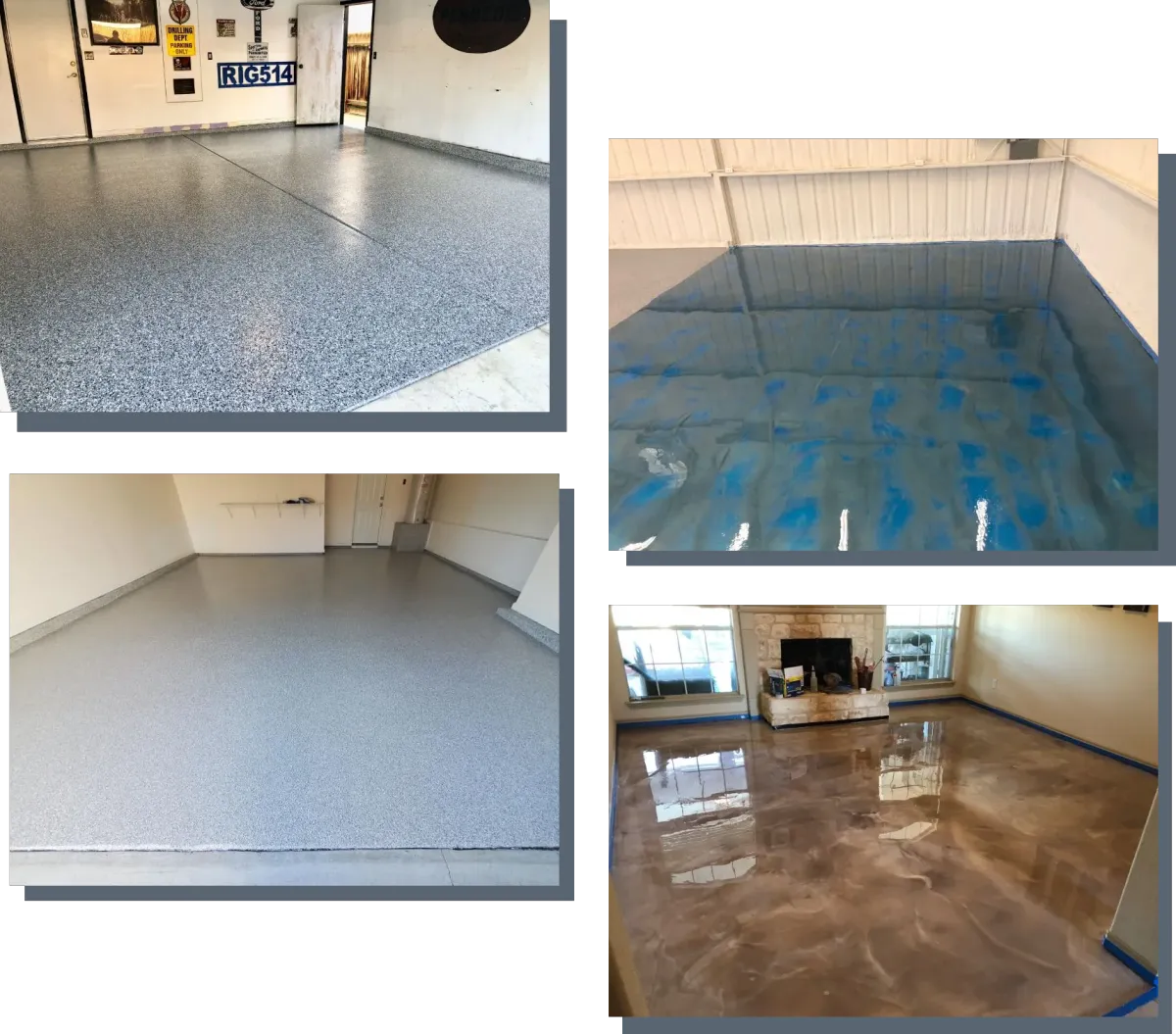
Why choose Us
Providing the #1 Concrete Coating product and process on the market.

1 day concrete coatings
Lifetime warranty
Industry leading 6 step process
Up front pricing on the spot - Never ballpark bait and switch pricing
Family owned
Locally owned
Trusted
State of the art equipment
Use the highest quality products known to the industry
Our Process
We install our product in your home, garage,
patio, pool deck, driveway, or business in just ONE DAY!
We back our product with our Lifetime Warranty, you can rest assured that you are
getting the highest quality product with the highest quality service
that will last for decades to come.
Step 1

Smooth It
We fill in any cracks and spalls, before smoothing the floor and vacuuming any dust.
Step 2

Fix It
We’ll mend and fix any damage to the existing floor.
Step 3

Coat It
We apply the base coat to the bottom layer of the flooring, in order to have a stable foundation.
Step 4

Toss It
We hand-toss your vinyl flakes, which are made with pigment, resin, and other elements, to make the flooring more resistant to dirt.
Step 5

Vaccum It
Once the vinyl flakes have been tossed, we vacuum the floor again to eliminate any lingering dust.
Step 6

Touch It Up
We apply a UV-deterring coat, and seal it.
Our Process
We install our product in your home, garage,
patio, pool deck, driveway, or business in just ONE DAY!
We back our product with our Lifetime Warranty, you can rest assured that you are
getting the highest quality product with the highest quality service
that will last for decades to come.
Step 1

Smooth It
We fill in any cracks and spalls, before smoothing the floor and vacuuming any dust.
Step 2

Fix It
We’ll mend and fix any damage to the existing floor.
Step 3

Coat It
We apply the base coat to the bottom layer of the flooring, in order to have a stable foundation.
Step 4

Toss It
We hand-toss your vinyl flakes, which are made with pigment, resin, and other elements, to make the flooring more resistant to dirt.
Step 5

Vaccum It
Once the vinyl flakes have been tossed, we vacuum the floor again to eliminate any lingering dust.
Step 6

Touch It Up
We apply a UV-deterring coat, and seal it.
Call Us At 469.389-5807 for A Free Quote!
You can rest assured that you are getting the highest quality product with the highest quality service that will last for decades to come.
Call Us At
469-389-5807 for A Free Quote!
You can rest assured that you are getting the highest quality product with the highest quality service that will last for decades to come.
Testimonials
Every step we take in our processes is to ultimately ensure our customers are 100% satisfied.
Highly Recomended!
“Reputable company that does quality work. Price points are fair and they over deliver on service and communication, which is rare to get from most businesses today. Highly recommended!”
Alan H.
Highly Recomended!
"They did a fantastic job. The guys arrived on time. They did everything in one day. They practiced social distancing. And our floor looks fantastic. I hate to park my truck on it. The warranty is incredible. We will be using Rush and Reef Concrete Coatings again.”
Larry H.
Highly Recomended!
“My install was done yesterday and I could not be happier. The follow up once our appointment was scheduled through the crew arriving yesterday was timiely and organized. Not a single delay or reschedule. Crew arrived 10 minutes prior to the our appointment and worked non-stop. They were incredibly friendly and explained each step of what they would be doing.”
Tim C.
Testimonials
Every step we take in our processes is to ultimately ensure our customers are 100% satisfied.
Highly Recomended!
“Reputable company that does quality work. Price points are fair and they over deliver on service and communication, which is rare to get from most businesses today. Highly recommended!”
Alan H.
Highly Recomended!
"They did a fantastic job. The guys arrived on time. They did everything in one day. They practiced social distancing. And our floor looks fantastic. I hate to park my truck on it. The warranty is incredible. We will be using Rush and Reef Concrete Coatings again.”
Larry H.
Highly Recomended!
“My install was done yesterday and I could not be happier. The follow up once our appointment was scheduled through the crew arriving yesterday was timiely and organized. Not a single delay or reschedule. Crew arrived 10 minutes prior to the our appointment and worked non-stop. They were incredibly friendly and explained each step of what they would be doing.”
Tim C.
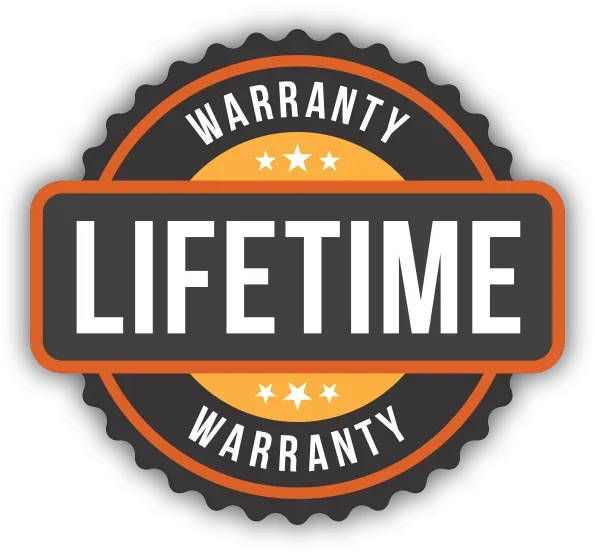
If your coating chips, peels, or blisters,
we'll fix it for free.
Not a cent will come out of your pocket.
We serve the entire Dallas, Texas region, ensuring your new floor meets the highest quality standards.

If your coating chips, peels, or blisters, we'll fix it for free.
Not a cent will come out of your pocket.
We serve the entire Dallas, Texas region, ensuring your new floor meets the highest quality standards.
